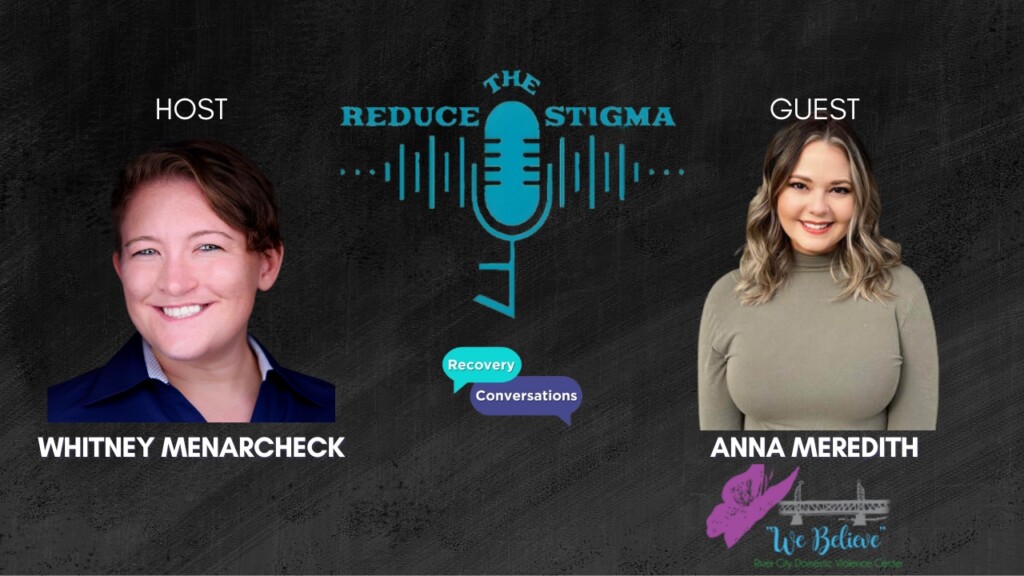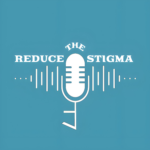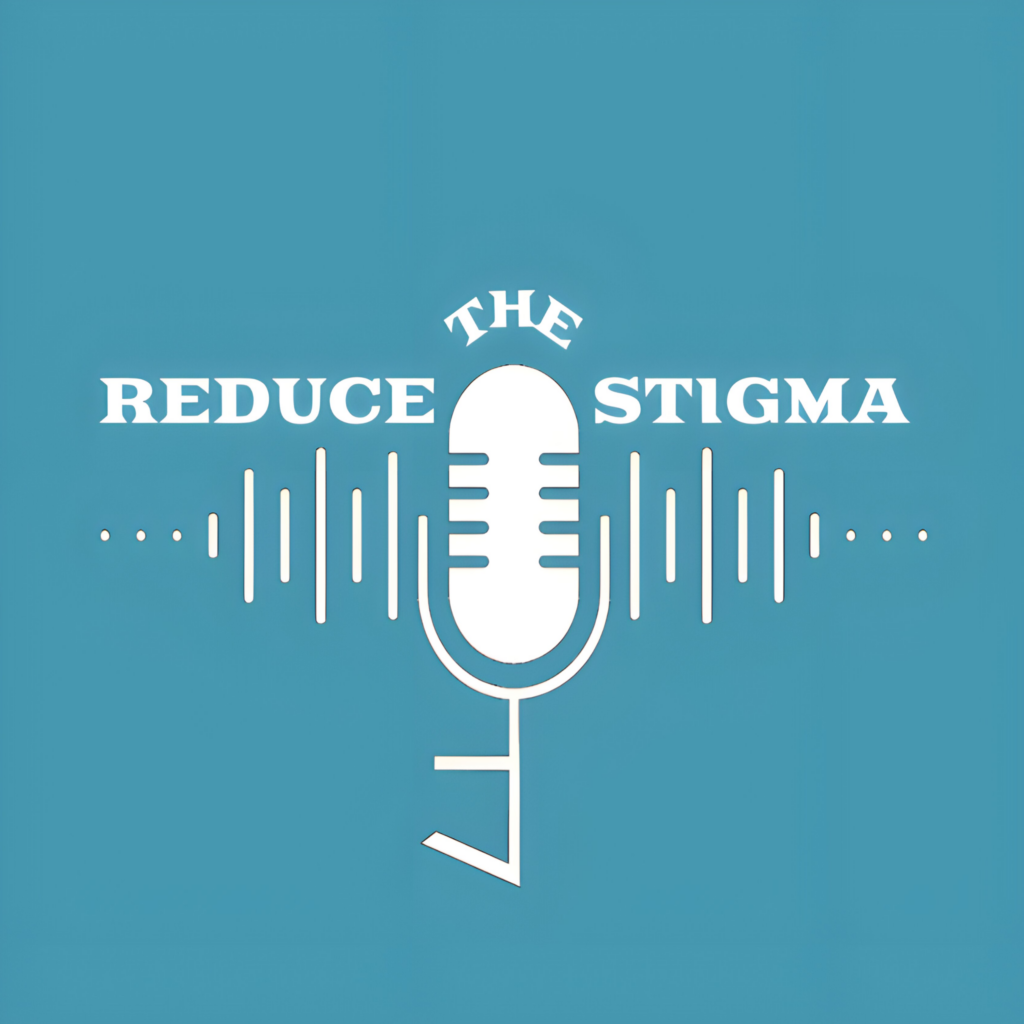Reduce The Stigma - Recovery Conversations: Anna Meredith, River City Domestic Violence Center

It's a horrible experience, but let's talk about it because that's how we change somebody else's life. And that's how we prevent the loss of another.
Anna Meredith
Domestic violence, also known as intimate partner violence (IPV), is often met with silence, shame, rationalization and stigma, leaving the individual feeling alone, unsafe, and as if there’s no way out. On the latest episode of Reduce The Stigma – Recovery Conversations, host Whitney Menarcheck speaks with Anna Meredith, the education and survivor services supervisor at River City Domestic Violence Center in Yankton, South Dakota, who educates us all on the necessity that we raise awareness of domestic violence. During the conversation, Anna highlights the wonderful work her organization does and opened up about her personal experience as a survivor of domestic violence.
Anna’s story highlights the complexities and challenges faced by individuals experiencing domestic violence. While outsiders may see the “solution” as a simple “just leave,” the reality is complicated and dangerous. From financial ties, to housing needs, and possibly shared children – there is nothing simple about it, or the feelings, thoughts, and emotions experienced.
Ideally, by raising awareness awareness we could prevent domestic violence before it happens. But, if it can’t be prevented, we must all do our part to support the individual and not push them away and possibly back to the person causing them pain. By educating ourselves on the signs of power and control in relationships and being active bystanders, we can play a role in curbing violence and supporting those in need.
River City Domestic Violence Center serves not only its community in Yankton, but also seven surrounding counties, providing crucial support and resources to individuals fleeing domestic violence. From 24/7 crisis lines to emergency shelters and legal assistance, River City is dedicated to breaking the cycle of abuse and helping survivors rebuild their lives.
Wondering what you can do? Anna shared the following recommendations:
- Educate yourself about domestic violence and recognizing the signs of power and control in relationships. By understanding the dynamics of abuse, individuals can better support those in need and intervene effectively.
- Be an active bystander and speak up if you witness concerning behavior or suspect someone is experiencing abuse.
- Know what resources are available in your community in case they are ever needed.
- Avoid victim-blaming and judgmental attitudes towards survivors of domestic violence. Instead of blaming or questioning survivors’ decisions, it’s crucial to offer non-judgmental support and respect their autonomy.
By breaking the silence surrounding domestic violence and offering support and resources to survivors, we can work towards a future where everyone feels safe in their relationships. It’s time to join together as a community to raise awareness, support survivors, and prevent domestic violence from taking hold in our homes and communities.
RESOURCES
- Receive peer support services: straightupcare.com
- Find a shelter or program near you: https://www.domesticshelters.org/
- National Domestic Violence Hotline: https://www.thehotline.org/ or call 1-800-799-SAFE (7233). You can also text “START” to 88788
- National Resource Center on Domestic Violence: https://www.nrcdv.org/
- Domestic Violence Awareness Project: https://www.dvawareness.org/
How to Watch

Watch on any device on ReduceTheStigma.com

Install and Watch all Episodes on Reduce the Stigma RokuTV Channel

Install and Watch all Episodes on Reduce the Stigma Amazon Fire TV Channel
How to Listen

Our Podcast Website on Podops!
Listen on Apple Podcasts!

Listen on Spotify!

Listen on iHeart Radio!

Listen on YouTube Podcasts!
Follow Straight Up Care

Pingback: